2003: Beginning
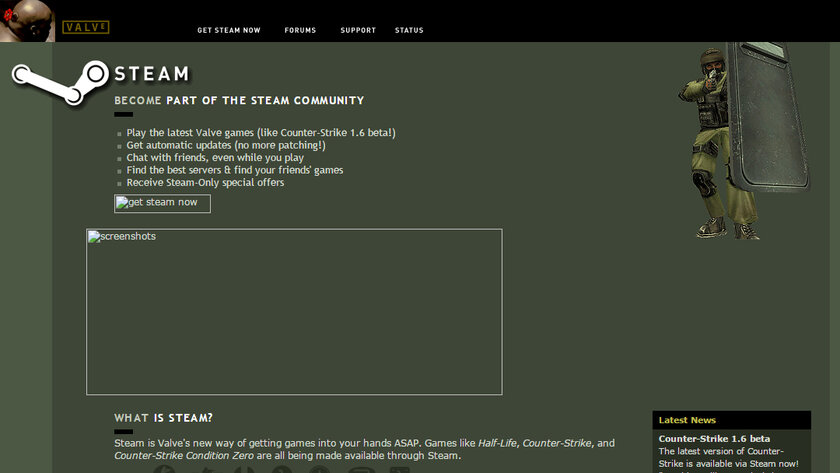
2004: Everyone installs Steam for Half-Life 2
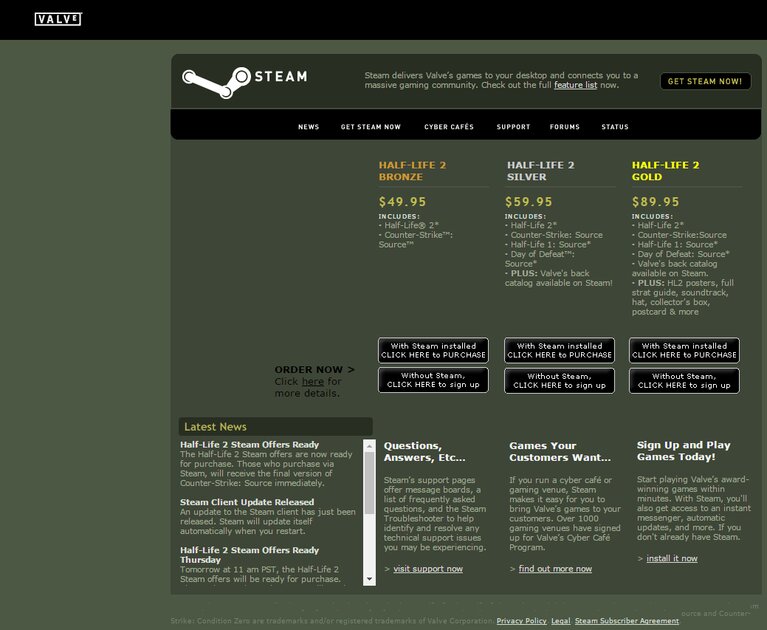
2005: Shop appears
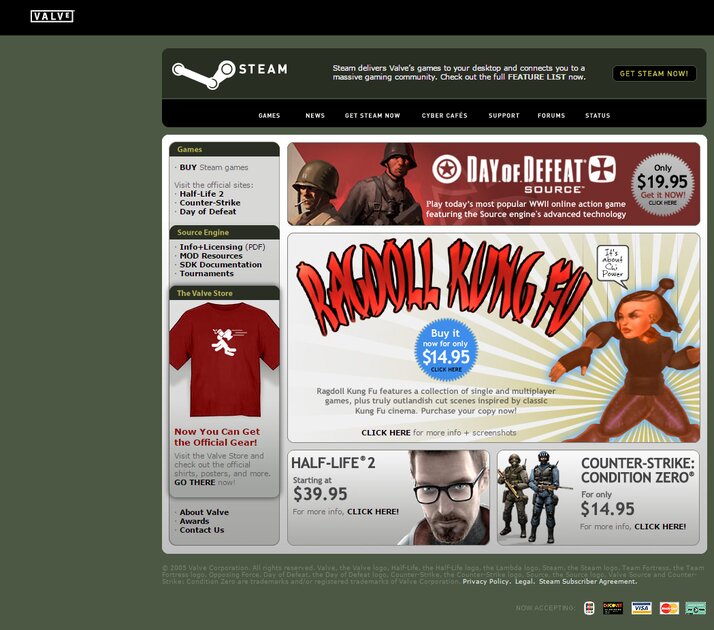
2006: The Library Grows
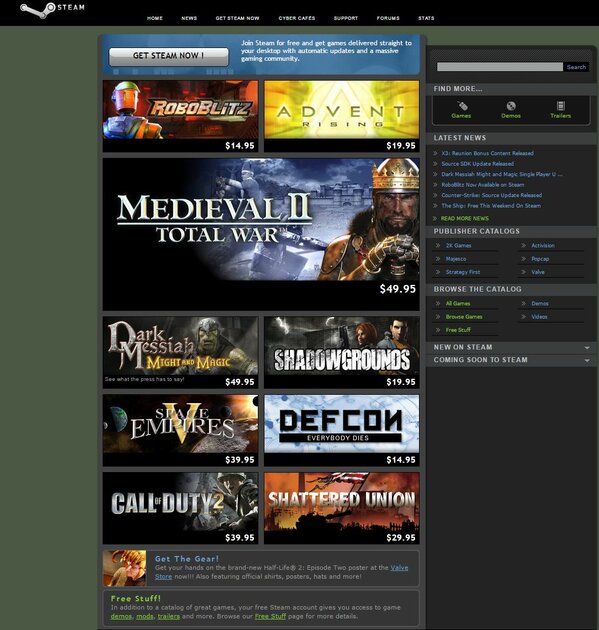
2007: Showcase appears
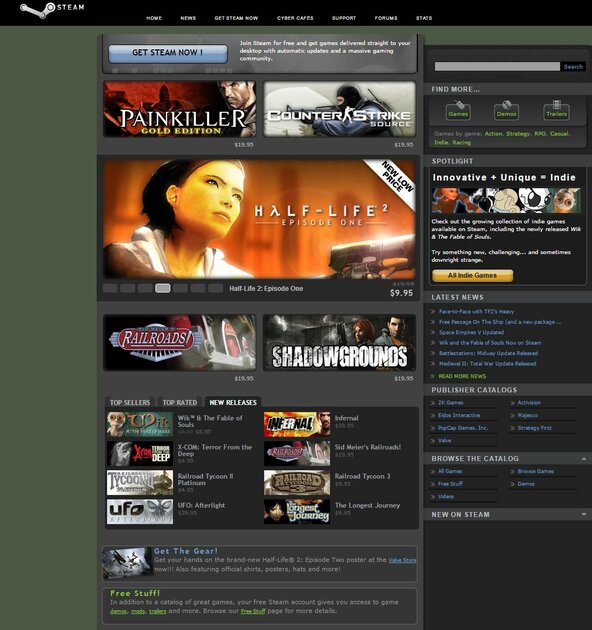
2008: Quality of life improvements
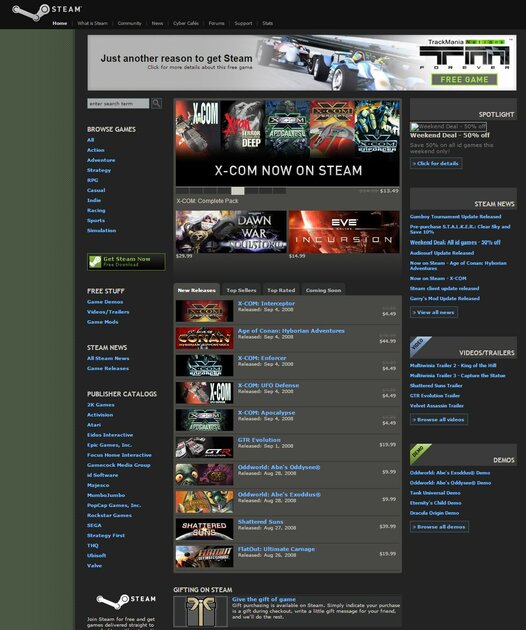
2009: Foundation for the backlog
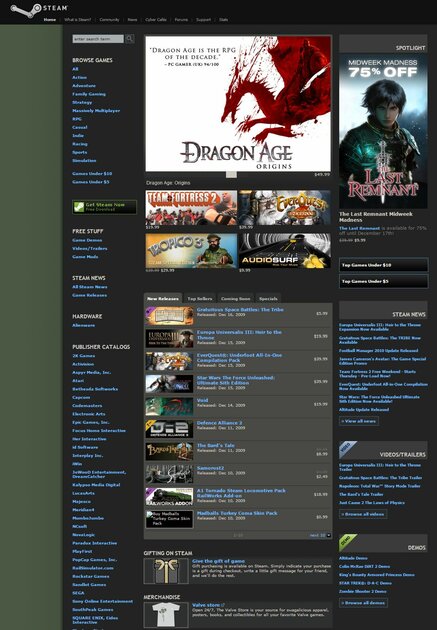
2010: Strong growth
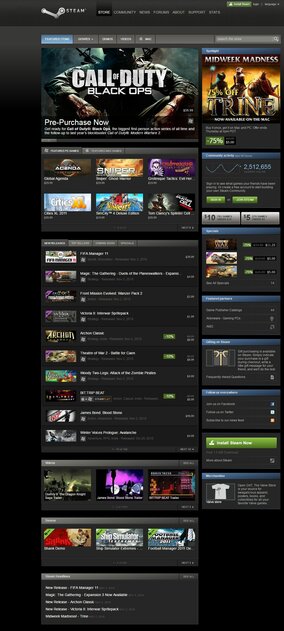
2011: Steam Workshop introduced
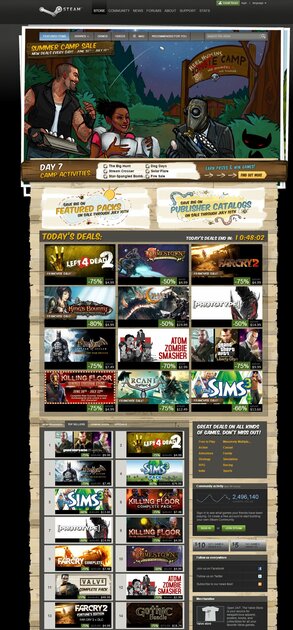
2012: The Year Everything Changed
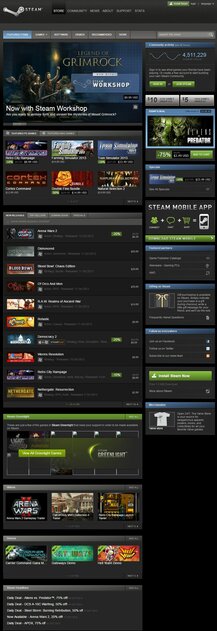
2013: User feedback and early access

2014: Emergence of Discovery
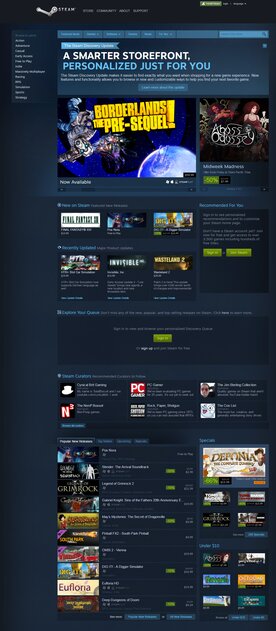
2015: Paid mods
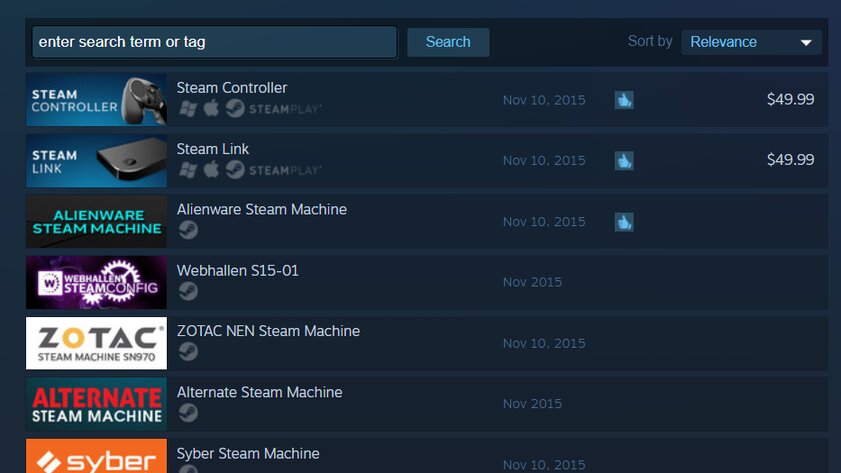
2016: Virtual reality
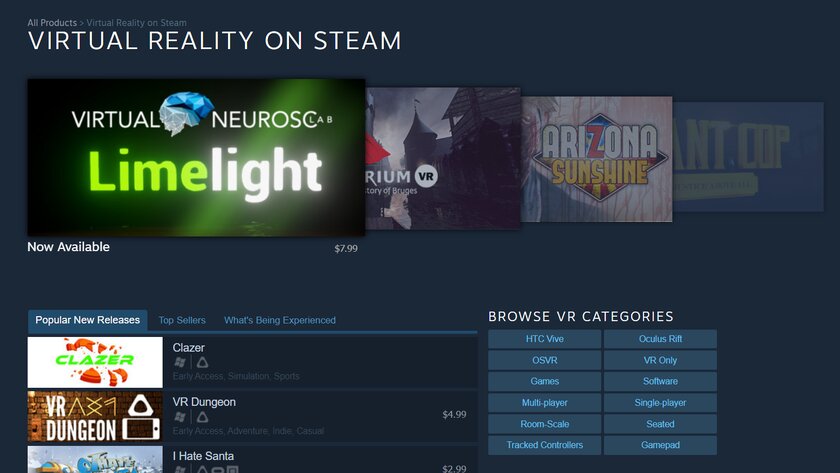
2017: Steam Direct introduced

2018: Games for adults
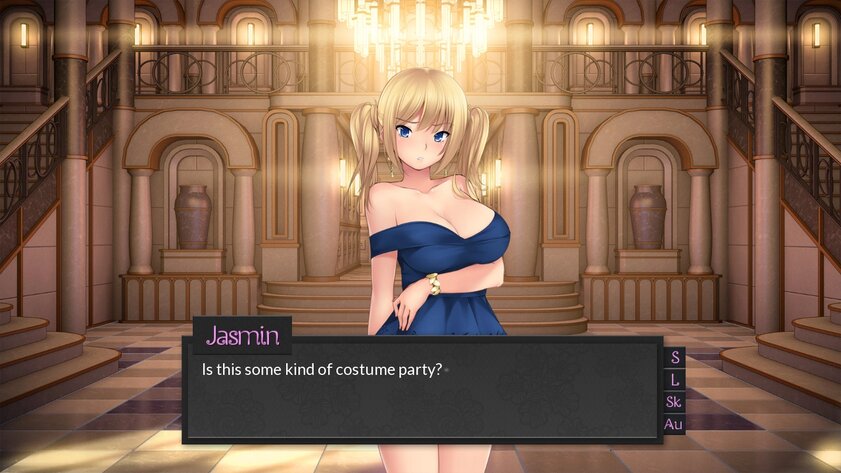
2019–2022: Epic Games Store и Steam Deck
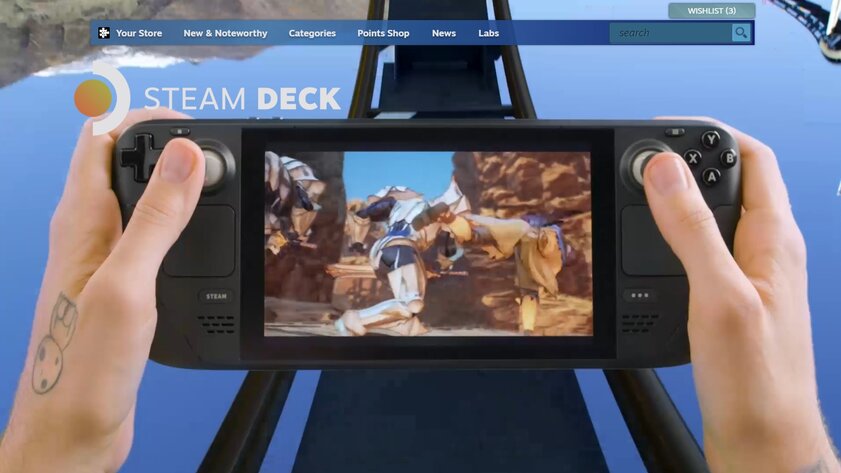
Aim for the future
In the modern video game market, everything changes very quickly - metaverses, NFT cosmetic items, e-sports, streaming from any iron and other interesting innovations can change the picture of the world in the blink of an eye. At the same time, Steam is likely to remain the same island of inviolability and constancy that it has been since 2005 - even the Epic Games Store, with all its exclusives, could not shake Valve's confidence in its site. It remains only to connect access to a subscription like Microsoft PC Game Pass with access to a huge library of video games with monthly payments to hit the jackpot - perhaps Valve will announce this for the 20th anniversary.Source: PC Gamer.
Source: Trash Box
World Herald News
World Herald News
World Herald News
World Herald News
World Herald News
World Herald News
World Herald News
World Herald News
World Herald News
World Herald News
World Herald News
World Herald News
World Herald News
World Herald News
World Herald News
World Herald News
World Herald News
World Herald News
World Herald News
World Herald News
World Herald News
World Herald News
World Herald News
World Herald News
World Herald News
World Herald News
World Herald News
World Herald News
World Herald News
World Herald News
World Herald News
World Herald News
World Herald News
World Herald News
World Herald News
World Herald News
World Herald News
World Herald News
World Herald News
World Herald News
World Herald News
World Herald News
World Herald News
World Herald News
World Herald News
World Herald News
World Herald News
World Herald News
World Herald News
World Herald News
World Herald News
World Herald News
World Herald News
World Herald News
World Herald News
World Herald News
World Herald News
World Herald News
World Herald News
World Herald News
World Herald News
World Herald News
World Herald News
World Herald News
World Herald News
World Herald News
World Herald News
World Herald News
World Herald News
World Herald News
World Herald News
World Herald News
World Herald News
World Herald News
World Herald News
World Herald News
World Herald News
World Herald News
World Herald News
World Herald News
World Herald News
World Herald News
World Herald News
World Herald News
World Herald News
World Herald News
World Herald News
World Herald News
World Herald News
World Herald News
World Herald News
World Herald News
World Herald News
World Herald News
World Herald News
World Herald News
World Herald News
World Herald News
World Herald News
World Herald News
World Herald News
World Herald News
World Herald News
World Herald News
World Herald News
World Herald News
World Herald News
World Herald News
World Herald News
World Herald News
World Herald News
World Herald News
World Herald News
World Herald News
World Herald News
World Herald News
World Herald News
World Herald News
World Herald News
World Herald News
World Herald News
World Herald News
World Herald News
World Herald News
World Herald News
World Herald News
World Herald News
World Herald News
World Herald News
World Herald News
World Herald News
World Herald News
World Herald News
World Herald News
World Herald News
World Herald News
World Herald News
World Herald News
World Herald News
World Herald News
World Herald News
World Herald News
World Herald News
World Herald News
World Herald News
World Herald News
World Herald News
World Herald News
World Herald News
World Herald News
World Herald News
World Herald News
World Herald News
World Herald News
World Herald News
World Herald News
World Herald News
World Herald News
World Herald News
World Herald News
World Herald News
World Herald News
World Herald News
World Herald News
World Herald News
World Herald News
World Herald News
World Herald News
World Herald News
World Herald News
World Herald News
World Herald News
World Herald News
World Herald News
World Herald News
World Herald News
World Herald News
World Herald News
World Herald News
World Herald News
World Herald News
World Herald News
World Herald News
World Herald News
World Herald News
World Herald News
World Herald News
World Herald News
World Herald News
World Herald News
World Herald News
World Herald News
World Herald News
World Herald News
World Herald News
World Herald News
World Herald News
World Herald News
World Herald News
World Herald News
World Herald News
World Herald News
World Herald News
World Herald News
World Herald News
World Herald News
World Herald News
World Herald News
World Herald News
World Herald News
World Herald News
World Herald News
World Herald News
World Herald News
World Herald News
World Herald News
World Herald News
World Herald News
World Herald News
World Herald News
World Herald News
World Herald News
World Herald News
World Herald News
World Herald News
World Herald News
World Herald News
World Herald News
World Herald News
World Herald News
World Herald News
World Herald News
World Herald News
World Herald News
World Herald News
World Herald News
World Herald News
World Herald News
World Herald News
World Herald News
World Herald News
World Herald News
World Herald News
World Herald News
World Herald News
World Herald News
World Herald News
World Herald News
World Herald News
World Herald News
World Herald News
World Herald News
World Herald News
World Herald News
World Herald News
World Herald News
World Herald News
World Herald News
World Herald News
World Herald News
World Herald News
World Herald News
World Herald News
World Herald News
World Herald News
World Herald News
World Herald News
World Herald News
World Herald News
World Herald News
World Herald News
World Herald News
World Herald News
World Herald News
World Herald News
World Herald News
World Herald News
World Herald News
World Herald News
World Herald News
World Herald News
World Herald News
World Herald News
World Herald News
World Herald News
World Herald News
World Herald News
World Herald News
World Herald News
World Herald News
World Herald News
World Herald News
World Herald News
World Herald News
World Herald News
World Herald News
World Herald News
World Herald News
World Herald News
World Herald News
World Herald News
World Herald News
World Herald News
World Herald News
World Herald News
World Herald News
World Herald News
World Herald News
World Herald News
World Herald News
World Herald News
World Herald News
World Herald News
World Herald News
World Herald News
World Herald News
World Herald News
World Herald News
World Herald News
World Herald News
World Herald News
World Herald News

0 Comments
Any Queries , You May Ask